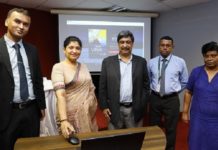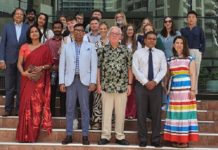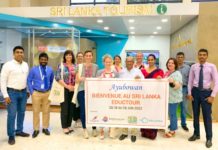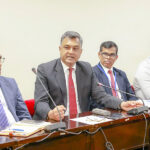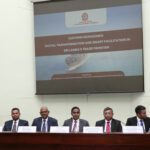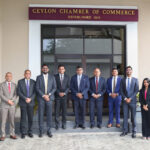Sri Lanka Institute of Tourism & Hotel Management (SLITHM), the Government-approved premier institute in Sri Lanka training youth in the Hospitality, Tourism and Travel Industry, managed by The Ministry of Tourism, is about to sign a MoU with the Australian Government-funded Skills for Inclusive Growth (S4IG) Program managed by Scope Global Pty Ltd.
Skills for Inclusive Growth is a skills program that uses the tourism sector to explore and demonstrate successful models of change within skills providers and formal and informal tourism enterprises.
Under the terms of this MoU, supported and guided by S4IG, SLITHM plans to adopt Tourism Business coaching as a means to support small tourism related business achieve government and industry quality standards to operate in the tourism sector and generate improved revenues. SLITHM will pilot coach training and work with industry groups to market the service to smaller business as a way to adapt and recover in tourism.
A Coaching Training Course is also to be completed and implemented through this programme. Accordingly, interested and capable SLITHM officials & academics will be trained as Tourism Business Coaches. A self-funded licensing system is to be implemented to assure quality of coaching services and Industry licensing will be a requirement.
An E-Tourism training course will be packaged as a Foundational course and an Advanced level course will be operational within SLITHM in the second half of 2021. S4IG will support SLITHM to deliver more flexible, relevant, and responsive training to SME enterprises in the tourism sector to improve the digital marketing capacity of small business and enable these enterprises to develop better direct links with visitors.
The training provided will equip SME’s with the knowledge to curate more relevant and authentic experiences which the post Covid traveler will be seeking more than ever before. The course supports businesses to identify and align with destination marketing channels and to tailor-make services and experience based on traveler demands, which will result in maximized yield.
Further, the parties to the MoU will cooperate to improve practice standards, licensing and professional development of Tour Guides in Sri Lanka. Drawing from relevant international experience and success in Thailand, Australia and South Africa, the S4IG program will facilitate development of agreed standards for this segment of stakeholders.
Twenty women will be selected to participate in the pilot program supporting tour guides in line with the goal set out by the national policy framework-to increase female representation in the industry. The programme will also incorporate an opportunity for the selected team to go through internships providing them with hands on experience.
In addition, a feasibility study will be conducted for setting up of a training centre for persons with disabilities to access employment in travel services managed by online travel and tour operators in Sri Lanka. The feasibility study will review how SLITHM can support operators seeking skills for on-line business processing services and how such a system can be incorporated into SLITHM’s training services.
There has been a dire need for Tourism Business Management training for small business which has also been identified as a priority by industry associations and the Tourism Skills Council. S4IG and SLITHM will investigate the viability of developing a professional training program for managers across the sector especially supporting small and medium sized business in 2021. S4IG and SLITHM will review the challenges of management skills in tourism and prepare a proposal for management approval. A model could then be tested in late 2021 and throughout 2022.
In other areas of cooperation, S4IG plans to work with SLITHM to identify opportunities for improved skills development in the areas such as review the Foundational Hospitality Training Package developed with NAITA and FCCISL which is an on-line or work-based training system that can be delivered in workplaces through a combination of workplace training, self-study and reflection and is assessed externally by Industry Assessors for skills recognition and certification.
The two parties will also review the capacity of training provision to support skills development in areas associated with social marketing – digital content creation; creating marketing leaflets; digital awareness programs; event management and other skills sets associated with regional destination development.
Wellness tourism is a top priority area for Sri Lanka based on the myriad of opportunities as identified by the National Export Strategy (NES) 2018-22 as well as Tourism policies. Support for this growth sector is underpinned by commitments from the Chinese, ADB and the World Bank Group to support the Government of Sri Lanka in developing large scale infrastructure investments in the healthcare / tourism wellness sector.
S4IG has established links with interested industry and government stakeholders in program areas and will work with SLITHM in 2021 to identify skills gaps and opportunities to support wellness tourism.
The above collaboration with SLITHM and S4IG will increase sustainable opportunities in the tourism sector in the areas of human recourse development, the SME sector, tour guiding sector and increase participation of women in the industry.
Sri Lanka Tourism in pursuit of fulfilling the mandate for tourism included in the National Policy framework, is charting a new course as it undergoes strategic re-engineering to be able to optimize resources and drive tourism to become the highest exchange-earner for the country and uplift the SME sector, while creating jobs and transforming the sector to finally achieve its potential.







